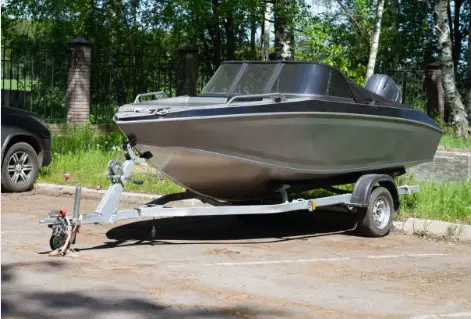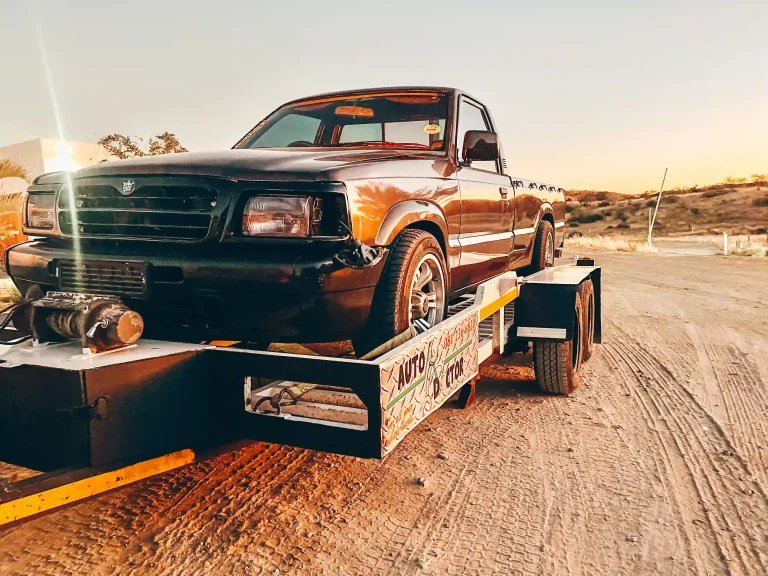Adjusting your hitch coupler is critical for maintaining optimal towing performance. Each time you tow, the alignment of the hitch coupler affects how your vehicle interacts with the trailer. A properly adjusted hitch coupler ensures safety, stability, and enhances towing efficiency, reducing wear and tear on your vehicle and trailer components.
Ensuring Safety and Stability
A well-adjusted hitch coupler is integral to ensuring safety while towing. If your coupler is not positioned accurately, it can lead to instability, making the vehicle and trailer susceptible to swaying. This scenario heightens the risk of losing control, especially during adverse weather conditions. Ensuring the correct alignment helps you maintain steady steering control and reduces the likelihood of accidents.
Enhancing Towing Efficiency
Besides safety, an optimally adjusted hitch coupler improves towing efficiency. The height and angle of the coupler significantly impact the resistance faced during towing. If the coupler is misaligned, it can create excess drag, leading to poor fuel efficiency. By taking the time to adjust your hitch coupler, you can save on fuel costs and improve the overall towing performance of your vehicle.
What Tools and Materials Do You Need for Adjustment?
Before you embark on adjusting your hitch coupler, gather the necessary tools and materials. Being prepared ensures a smoother adjustment process and contributes to overall effectiveness.
Essential Tools
You will need a few essential tools for the adjustment procedure. A socket wrench is vital for loosening or tightening the coupler bolts, while a level helps you gauge the alignment correctly. Depending on your hitch type, you may require additional tools, so assess your equipment beforehand. Having a torque wrench handy is also helpful for tightening bolts to the manufacturer’s specifications.
Necessary Materials
In addition to tools, consider acquiring the necessary materials. Lubricants can minimize friction and wear on the hitch coupler, allowing for smoother operation. If you notice wear or damage, replacement parts like threaded or socket weld couplings might be required. Ensure you have the correct coupler style and size for your towing setup, and consult suppliers for any customization options if needed. For a comprehensive selection, explore Go Trailer to find appropriate materials.
How Do You Identify Common Issues?
Identifying issues with your hitch coupler is the first step toward effective adjustment. Regular inspections and thorough listening can help you pinpoint potential problems before they escalate.
Inspecting the Hitch Coupler
Begin your inspection by visually examining the hitch coupler for signs of wear or damage. Check for cracks, rust, or deformities that could impair its function. Make sure the coupler connects securely to the trailer and assess any gaps that could indicate misalignment. Regular checks will allow you to catch issues early and schedule necessary repairs.
Listening for Unusual Noises
Auditory indicators can also highlight problems with your hitch coupler. While towing, listen for abnormal sounds such as clanking, rattling, or grinding. These noises often signal that your coupler may require adjustment or repair. Ignoring these sounds might lead to progressive damage, affecting both your trailer and vehicle safety.
How Do You Perform Effective Adjustments?
Once you have identified any issues, it’s time to perform the necessary adjustments to your hitch coupler. This process entails setting up your workspace, following a step-by-step adjustment procedure, and conducting post-adjustment checks.
Setting Up Your Workspace
Before you begin, create a safe and organized workspace. Ensure your vehicle is on level ground and use wheel chocks to prevent it from rolling. Clear any debris from the area to promote safety while you work. Have all your tools and materials within easy reach to make the adjustment process efficient.
Step-by-Step Adjustment Process
The adjustment process typically starts with loosening the coupler bolts using a socket wrench. Once released, check the alignment; make adjustments for height and angle as needed. Then, gradually tighten the bolts back to specifications using a torque wrench to ensure they are securely in place. It’s advisable to refer to your vehicle and trailer guidelines for specific torque values. For specialized adjustments, Customization options may be suited for your needs.
Post-adjustment Checks
After completing the adjustments, carry out a thorough check. Reinspect the hitch coupler for any gaps and ensure all bolts are securely tightened. Conduct a quick test by attaching the trailer and performing a brief tow on a safe and open road. Pay attention to how the vehicle handles and listen for any unusual noises. Monitoring the towing experience after adjustments is essential for confirming that the hitch coupler is functioning optimally.
By following these guidelines, you can ensure that your hitch coupler remains in prime condition, leading to an enhanced towing experience.
When Should You Seek Professional Help?
Adjusting a hitch coupler can be straightforward; however, there are instances where professional expertise is warranted. Recognizing the limitations of your knowledge and skills can help you maintain towing safety and efficiency.
Recognizing Complex Issues
Sometimes, the problems you encounter with your hitch coupler may extend beyond mere adjustments. Issues like bent hitches, severe rusting, or incompatible parts may require specialized attention that a general user might not have the tools or expertise to address. If you find yourself needing to repair or replace core components, it’s wise to consult a professional who can accurately diagnose the situation and offer effective solutions. An expert can also provide options based on your specific towing needs without compromising your safety.
Benefits of Expert Services
Seeking professional help not only saves you time but also reduces the risk of making mistakes that could lead to accidents. Specialists have access to advanced tools and knowledge that you’re unlikely to possess, allowing for a thorough inspection and accurate repairs. Additionally, professionals can recommend enhancements based on the specifics of your trailer and vehicle, tailoring your setup for ideal performance. This can also include advising on customized couplers that accommodate unique towing needs. Therefore, it may be best to consult an expert when towing safety becomes a concern.
Can You Customize Your Hitch Coupler?
Customization of your hitch coupler can significantly enhance your towing experience. If your existing setup isn’t meeting your expectations or requirements, exploring customization options can lead to improved performance.
Advantages of Customization
Customizing your hitch coupler offers several advantages that can elevate your towing activities. One of the most significant benefits is the ability to select a coupler that matches your specific vehicle and trailer compatibility. This tailored fit can minimize swaying and improve stability when towing, making for a more relaxed driving experience. Furthermore, customized couplers can include features that adapt to varying load capacities and hitch heights, giving you the flexibility needed for different towing scenarios.
By investing in customized solutions, you may also enhance your vehicle’s aesthetic appeal. Customization allows you to select designs and finishes that complement your vehicle, increasing your pride in ownership. Whether you need additional safety features or just a more attractive appearance, customization can meet your needs effectively.
Accessing Customization Services
To access quality customization options, look for reputable suppliers that specialize in hitch coupler settings. One such resource is Go Trailer, where you can explore a wide range of products designed for specialized towing needs. Their expertise in parts and customization ensures that your hitch coupler will not only fit your vehicle effortlessly but also serve its purpose efficiently. Do take time to consult with the professionals there for tailored advice on your unique towing requirements.
How Can Regular Maintenance Improve Performance?
Regular maintenance of your hitch coupler is essential in preserving its functionality. Keeping the hitch system in top shape not only contributes to better towing performance but also extends the life of your equipment.
Routine Inspection Schedule
Establishing a routine inspection schedule can help you identify potential issues before they escalate. Perform thorough checks every few months, or more frequently if you use the hitch regularly. During these inspections, look for signs of rust, corrosion, and physical wear on the hitch components. A checklist that includes checking tightness of bolts, adequacy of lubrication, and any visible damage will serve you well. Remember that prevention is key; addressing minor issues promptly can save you from costly repairs down the line.
Long-term Benefits
Regular maintenance can yield significant long-term benefits beyond immediate performance enhancements. It leads to improved safety, as routine checks can catch potential flickers of dangerous wear. Consistent upkeep can also increase fuel efficiency, as a well-maintained hitch coupler operates smoothly and with less drag. Ultimately, investing time in proper maintenance translates to fewer breakdowns, ensuring that you enjoy uninterrupted towing experiences throughout its lifespan. Adopting a proactive maintenance approach maximizes your hitch coupler’s performance and reliability.
By following the guidelines outlined in this article, you can effectively adjust, maintain, and optimize your hitch coupler, ensuring that it continues to enhance your towing experience for years to come.







